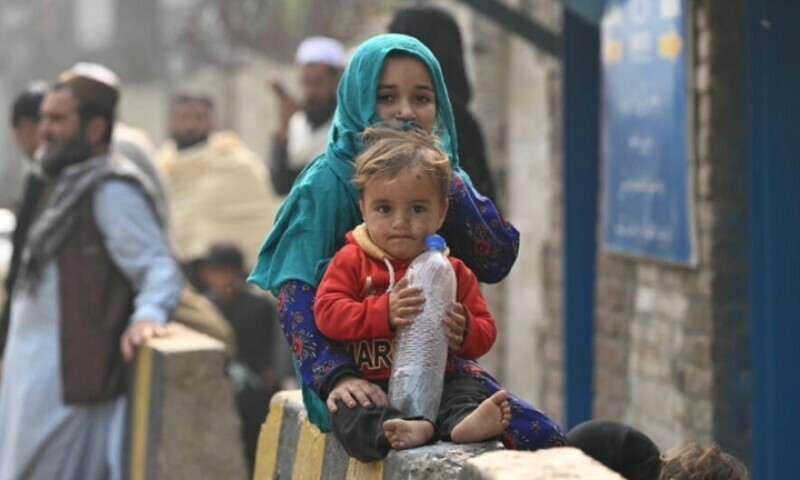
Abdullah was a well-known public figure in Afghanistan, a journalist and university lecturer respected by his readers and students.
In Pakistan, however, he is lying low — worried about being caught in a deportation dragnet while still awaiting evacuation to the West after two years.
He fled his country when the Taliban returned to power in August 2021, on the advice of US officials and Reporters Without Borders (RSF), fearing retribution from the new authorities who had a history of targeting journalists.
The 30-year-old crossed into Pakistan along with an estimated 600,000 other Afghans, tens of thousands of whom were promised asylum in third countries.
But more than 345,000 Afghans have returned to their country or been deported since Pakistan ordered undocumented migrants or those who have overstayed their visas to leave.
“For fear of the police, I haven’t left this room for 15 days,” said Abdullah, using a pseudonym for security reasons.
“If I could have led a normal life in Kabul, I would have become a street vendor or shopkeeper. I would have preferred that to my current situation.”
Rights groups have said many Afghans have been left in limbo — their visas expired because of delays in the Pakistan registration system. Thousands are trapped in an interminable relocation process established by Western nations, which has significantly slowed.
Abdullah has a valid visa, but said police have twice raided his home.
“In Kabul, I was a journalist and university teacher. Here I’ve lost my identity,” he told AFP from an apartment in Islamabad.
Since fleeing Afghanistan he has exchanged only two or three e-mails with US officials.
RSF has arranged an interview for him at the French embassy in Islamabad.
‘Need to live’
Ahmed, a former British army interpreter in Afghanistan, was approved for evacuation two years ago. Yet he remains stuck in an Islamabad hotel room, paid for by the UK’s diplomatic mission.
“I have been here more than 700 days,” the 32-year-old said, bitterly.
“I don’t know the reason why the UK government is doing injustice with me, why I have been stuck here. I need a life, I need education and I want to build my new home,” said Ahmed, also using a pseudonym.
His Pakistan visa expired over a year ago, and he fears being deported to Afghanistan, even though Islamabad has pledged not to kick out people in his situation.
“When I text my caseworker, he’s telling me: ‘Be patient, be patient, be patient’,” he told AFP.
Only 175 people have been resettled in the first six months of 2023, according to the Migration Observatory, which analyses UK Home Office statistics.
The United States has taken in 90,000 Afghans since August 2021 — again, the majority from the evacuation of Kabul.
Precise data on Afghans in Pakistan awaiting resettlement abroad is not available, but British media have reported that more than 3,000 Afghans are in Islamabad awaiting evacuation, while the German foreign ministry said 1,500 Afghans approved for asylum are still in Pakistan or Iran.
About 20,000 people recommended for asylum by US officials, NGOs and American media outlets are waiting in Pakistan for their cases to be examined, according to Refugees International.






